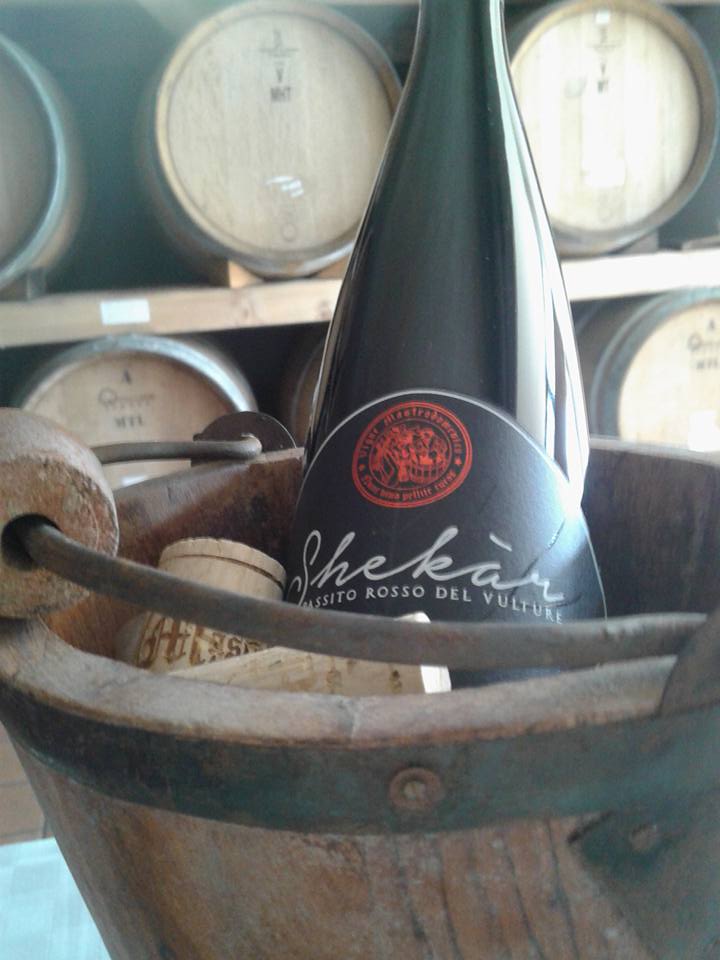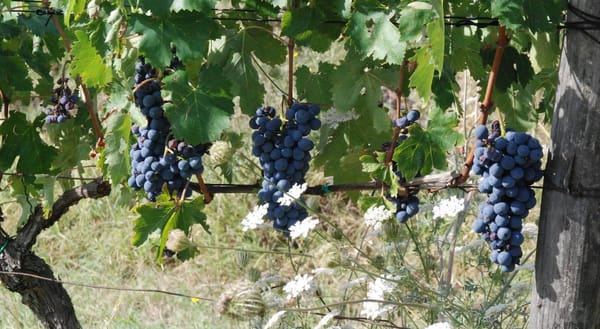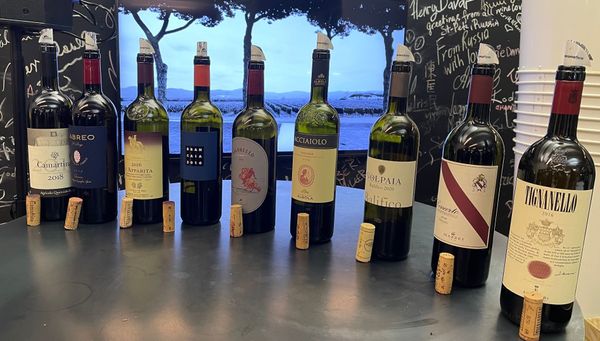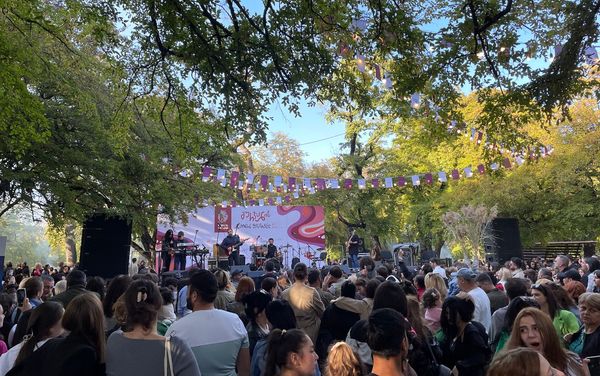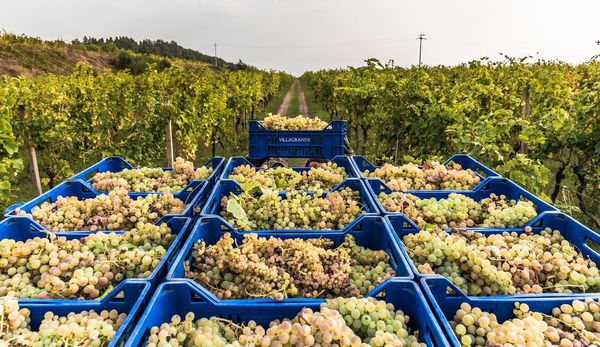Interview: Emanuela Mastrodomencio talks about the 2016 Aglianico del Vulture vintage

As growers continue to take stock of the 2016 vintage in Basilicata, I asked Emanuela Mastrodomenico of Vigne Mastrodomenico how rains just before picking have impacted on their harvest.
2016 has been a tricky year for some producers in the Vulture. The rains have divided the region into those who picked early and those who waited. How would you describe your experiences at Vigne Mastrodomenico?
This year we had a fair amount of rain, especially towards the end of September. In certain places it was pretty heavy. Our vineyards are located on the edge of Rapolla, one of the Aglianico del Vulture DOC villages. The area is known as the Acquarossa district as the hillside slopes provide excellent drainage and help to avoid puddles in the vineyards. We also added to these natural advantages by working hard in the vineyards over the previous months. I am very happy to say that despite the weather, this has been a good year and we are profiting from renewed sunshine to finish off the harvest.
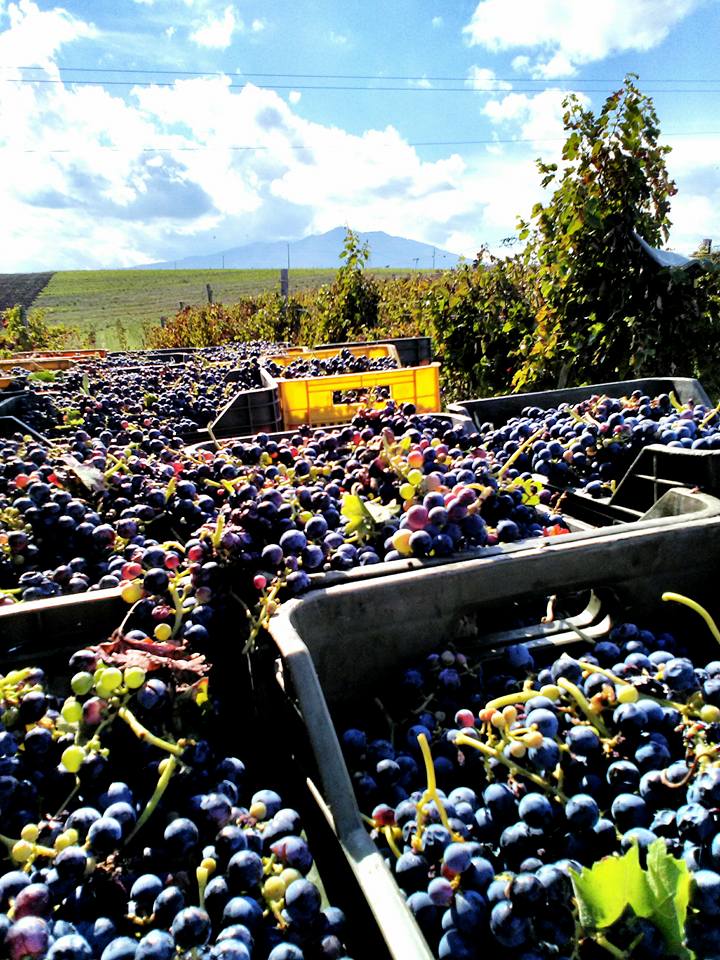
Could you tell us about some of the extra work you did in the vineyards to get the best out of your grapes?
We have about eight hectares of vineyards in Rapolla meaning that the work is above all a team effort. Every single person is important to achieve a successful crop and therefore successful wines. For my part, I try to support my father in organising the workloads and in preparing the cellar before the grapes arrive. My father works hard in the vineyards every day, ensuring that each row, even each vine is carefully monitored. It is this level of control that allows us to take decisions when needed and informs us of when the optimal harvest time is.
Vigne Mastrodomenico are known for their farm to fork program Can you tell us how this helped your interpret the vine in this difficult year?
Farm to fork is a beautiful challenge started by my brother Giuseppe, and it is a project in which we strongly believe. It looks at providing traceability throughout the entire winemaking process, from the vineyard, right through to the finished product. Not only does it anticipate the way in which the consumer will engage with wine and technology in the future, it also helps us to presevare and optimize the traditions that our grandparents taught us. We are continuing our little experiment and we plan, in the near future to develop it further. So....more news coming soon!!!
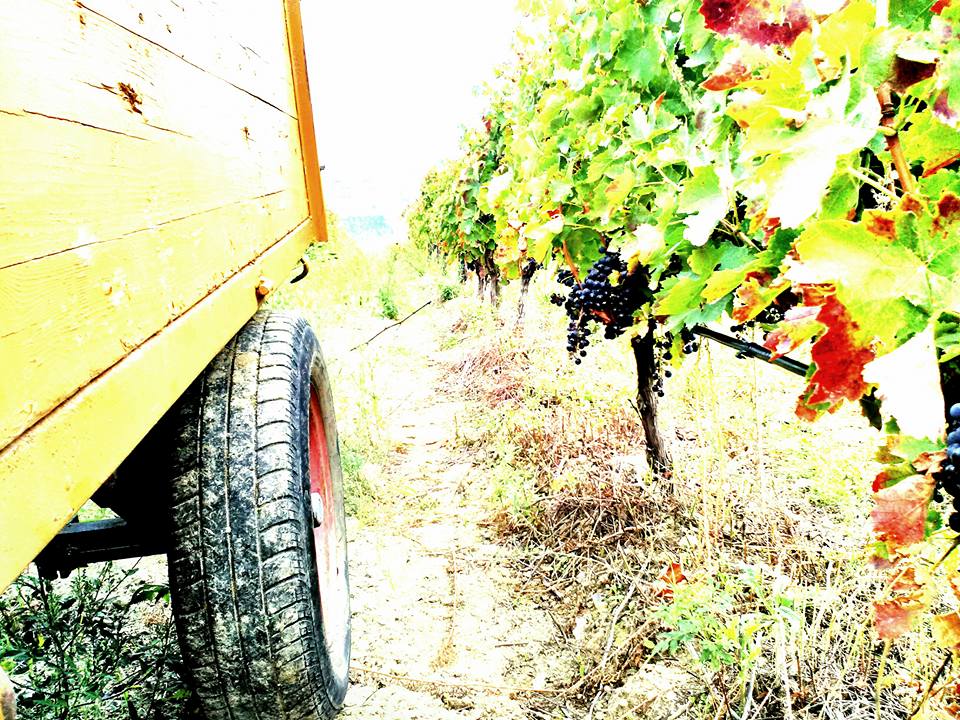
How do you think the 2016 Aglianico del Vulture will mature in the bottle over the next 5-10 years. What are your predictions?
It's still a little early to tell, but the 2016 vintage will be well good structured if not as heavy as other years. The taste of the must is reminiscent of those years that give intense wines with elegance. The acidity is there too of course. I believe that with the right treatment even 2016 could become one of those vintages that are kept in the cellar for 10-15 years.
Are there any vintages that are now drinking well? Which year should people unfamiliar with Aglianico look for?
I recently did a fantastic vertical tasting of wines from 2007 through to 2013. Undoubtedly the 2007s and the 2009s are the wines drinking particularly well at the moment. The 2010s and 2014s were a little lacklustre and this makes sense. Rain, hail and fog at key times during the maturation of the great did some damage to the crop. At Vigne Mastrodomenico we actually decided not to bottle the wines of these vintages.
Your sweet wine Shekar is becoming increasing popular. Do you plan to make it again this year?
Shekar is really a treat; it's a passito wine made from grapes dried on the vine. If all goes well we will produce Shekar this year as well. We'll leave the fruit for this wine on the vines now until November and hopefully we will get a nice extended period of sunshine so the Aglianico grapes can go through the drying process. We'll see.
